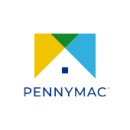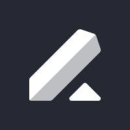There is a general misconception that only a FAANG company (or, one the most prominent tech companies in the sector) can offer engineers both the opportunity to solve important technical challenges and the ability to do meaningful work. As any engineer will tell you, especially one who lives in Los Angeles, that’s not true.
Los Angeles is filled with everything from small startups to established tech companies that, while they lack a fancy acronym or buzzed-about stock ticker, offer engineers the chance to take on difficult work that helps bring innovative products to life or makes the world a better place — and sometimes both. At this point you probably have three questions. First, what are these companies? Second, how do you land a job with them? Third, what is it like to work at them?
We had those same questions, so we decided to ask those who would know. We recently spoke with five newly hired engineers who landed jobs they love about what “clicked” for them when applying to their now-employers along with how they stood out in their interviews and what they enjoy most about their work.
What attracted you to apply for a role at PennyMac in the first place?
The growth at PennyMac coupled with cutting-edge technology and a build versus buy philosophy were very intriguing to me because of my focus in the application development field. I was looking to bring my previous mortgage experience and acquired skills to a company on a solid upward trajectory. The managers and team members I interviewed with were very knowledgeable and helpful, and it made me want to be a part of the team. I saw this as a chance to continue my career surrounded by people who encourage me to grow in a great atmosphere with great opportunities.
I truly enjoy the opportunity to use new tools and provide solutions to improve the home-buying process.”
Which skill or experience do you think helped distinguish you during your job search?
My knowledge of software development and experience working with smaller teams in a fast-paced Agile environment were significant attributes because PennyMac utilizes Agile. Similarly, my previous mortgage industry experience made it easier to understand and discuss the business implications of projects. My traits of being a team player, dedicated, intelligent and my knowledge of QA processes, along with my eagerness to learn new technologies, were well-received. However, I think what really landed me the job was when I told them my favorite movie was the “Bourne Identity.” This is a fun group!
What do you enjoy most about developing PennyMac’s technology, and what do you find most exciting or challenging?
I enjoy utilizing new technologies because it allows us to perform in the most efficient way possible, and because the process of learning something new brings a renewed love for what we already enjoy doing. It can be challenging to dedicate the time to learn something different, but the sense of accomplishment after the goal makes it all worth it. Since arriving at PennyMac, I have become part of a team that utilizes the AWS stack and focuses on the borrower loan application journey. I truly enjoy the opportunity to use new tools and provide solutions to improve the home-buying process of our customers.
What I find most challenging is how quickly things change in technology, most especially when using the Agile development methodology. Reprioritizing to meet current customer needs and shifting focus quickly is both exciting and challenging.
What attracted you to apply for a role at Titan X in the first place?
I walked into the job interview for my current role just to get a job, fresh out of college and looking for experience. But after learning more about the position, what appealed to me the most was that I could see a long-term future for the product I was being hired to help develop. The idea the company’s founders had was still at a very early stage, but there was a lot of passion behind it, and its inherent value was clear.
It was not only a good business idea, but also one that could potentially leave a significant impact on the world around us, something that appealed to the dreamer in me. And the chance to work at a startup and be on the ground floor of a fledgling company, where I could really apply myself to different areas of a product’s development, was an opportunity too good to miss.
I enjoy being immersed in the design and development process and feeling like I have a significant say in how a product or application is shaped and molded.”
Which skill or experience do you think helped distinguish you during your job search?
The ability to deliver. More than just being able to code or develop, if you’re able to show that you can take an idea and turn it into something tangible, a deliverable, then that really helps demonstrate your value as a programmer. My company’s CEO and I were talking a few months into my job, and he said a large reason they hired me was that I was one of the few candidates who could get a prototype on the table. Especially considering the company’s founders did not have a tech background, the clearest way to demonstrate my technical skills was to apply it to a product, something that they could dig their fingers into without needing to understand the programmatic machinations behind it.
I think there’s real value in being able to turn the bits of knowledge you have into a real-world, tangible application — it demonstrates that you really understand the tools available to you. And since then, I’ve seen people being hired at our company because they were able to show that same skill. They didn’t just know stuff: They knew how to use what they know.
What do you enjoy most about developing Titan X’s technology, and what do you find most exciting or challenging?
I think developing at a startup, and having to wear many different hats — hats I hadn’t planned on wearing when in college — is just inherently exciting and challenging. What I enjoy the most is really being immersed in the design and development process and feeling like I have a significant say in how a product or application is shaped and molded. It’s really a case of getting your hands messy, throwing out ideas, combining them, experimenting and testing different ways of doing things, and I get to do that at an early stage in my career. Compare that with maybe working in a more established institution. There are different perks of course, but there’s an existing system that you have to fit yourself into. Here, I’m involved in building that system around me.
That ties in with what’s most challenging: There’s no blueprint for what you should do, especially when you’re looking to be innovative and groundbreaking. So there’s always doubt regarding whether we’re going down the right path, if we’re making the right decisions and is what we’re building something of value and with potential. But that’s also what’s most exciting; you might be on the road toward something great.
What attracted you to apply for a role at Lever in the first place?
When I was job hunting, I noticed that a significant amount of the employers used Lever. I was always relieved applying through Lever because the interface was easy to use, had a good aesthetic and the application was quite quick to fill out. So when I saw Lever’s posting for this (software engineer) job, it piqued my interest. I looked at the job description and was more drawn to apply as the goals were listed for what this role was to accomplish in three, six and 12 months, which showcased that Lever was realistic regarding onboarding and its expectations of new hires and employees.
Before I finally hit “send” on my application, I researched Lever and was pleased with all of the diversity, equity and inclusion (DEI) initiatives it supported, both through the product and internally. While on LinkedIn, I found that the engineering team specifically was extremely diverse across many different identity categories. As a queer Black woman, an emphasis on DEI was important to me in my search. I had also heard about the great perks, empathetic interview process, and more, so I decided to finally apply.
I am constantly learning new things — outside of DerbyJS, I’ve learned CoffeeScript, TypeScript and Kafka, none of which I knew before I joined the team.”
Which skill or experience do you think helped distinguish you during your job search?
I actually have a very non-traditional background. I received a degree in both political science and African American studies, and I only had a small smattering of tech experience due to a few college internships and a brief project management role at a small IT firm right out of college. With a non-traditional engineering and technical background, I positioned myself as someone who could learn quickly through the strength of my portfolio.
I also played to my experience with open-source development through The Odin Project, a free and fully open-source programming education platform where I am now an official “core maintainer.” Being part of this community was definitely a point of interest in all of my interviews. Owning real-world projects from start to finish and working on long-term project teams through Odin made me just as competitive as those with professional experience.
What do you enjoy most about developing Lever’s technology, and what do you find most exciting or challenging?
Lever’s stack is relatively unique because it leverages an open-source framework written by our CEO early on in the company’s history, DerbyJS. Since this was written by our CEO, the framework is pretty niche, so I was a little nervous to start, as my experience is with React and Vue. With a niche framework, it can be a challenge when issues arise as there aren’t external resources I can turn to. However, it’s a neat challenge when there are so many internal resources I can turn to!
I am constantly learning new things — outside of DerbyJS, I’ve learned CoffeeScript, TypeScript and Kafka, none of which I knew before I joined the team. I’ve especially enjoyed learning more about TypeScript. It’s been a unique experience working with tons of other engineers who are willing to help or are humble enough to recognize that they are learning, too, and we end up learning together. I find it exciting to help build a product that I have used and many people I know use daily, whether as an applicant or a recruiter. There are a ton of cool features coming down the pipeline and it’s amazing to be a part of building them.
What attracted you to apply for a role at Versus Systems in the first place?
For me, it was the product. I thought “audience engagement and prizing” was a brilliant twist on marketing. I don’t know anyone who enjoys being interrupted by ads. With audience engagement, a user actively participates in the event, either through gaming on their preferred platform or via their mobile phones while following a live event in the arena or remotely. Even better, users get prizes for participating. It’s a win-win situation in the truest sense.
I have a passion for solving significant challenges, and it has been fun doing that here.”
Which skill or experience do you think helped distinguish you during your job search?
I think technical skill, specifically my experience building large scale systems, was a significant factor. Also noteworthy was my ability to break down technical details and communicate them to non-technical stakeholders.
What do you enjoy most about developing Versus’ technology, and what do you find most exciting or challenging?
I have a passion for solving significant challenges, and it has been fun doing that here. One example is implementing a solution to instantaneously scale our architecture to support a large number of concurrent users all activating our apps simultaneously. In addition, the system has to be reliable and fault-tolerant. The most exciting thing for me is the organization’s culture and the people. We are currently looking for more talented engineers to join our team, so be sure to check out our open roles!
What attracted you to apply for a role at Sidecar Health in the first place?
Sidecar Health’s mission to make healthcare affordable, accessible and transparent was the main reason I was attracted to the job. After suffering a blood clot in my leg, even though I was young and health-obsessed, having access to immediate care that I could afford was crucial, and I want to help others have the same accessible care I had when I needed it. When I first spoke to the folks at Sidecar Health, I was immediately drawn to the engineering mindset. Ideas like SOLID, clean code, and testing as a first-class citizen became apparent to me. I’m always excited to work with people who enjoy creating well-engineered software.
What solidified it was the culture of transparency and growth mindset I discovered during the interview process. Being forthcoming and not hiding behind expectations or old ideas is important to me.
I was immediately drawn to the engineering mindset.”
Which skill or experience do you think helped distinguish you during your job search?
I have a broad range of experience. My first few years in the industry were doing manual testing and writing test automation. That, combined with development experience at both large and small organizations, made me uniquely qualified to join a team looking to scale fast. The way I approached the work also made me stand out. I’ve gathered a lot of methods on how to do things “right,” but I always follow the Pareto principle to get the work done. Nobody can ever make it perfect, which makes iteration and developer productivity crucial. The only way to iterate quickly is to remove as much friction as possible between my fingers on the keyboard and production.
Finally, due to the recent experience with my health care and my exposure to the healthcare industry — through my previous work and my partner, a family practice physician — I made it important to share that I was focused on improving health, no matter how.
What do you enjoy most about developing Sidecar Health’s technology, and what do you find most exciting or challenging?
The best days are the ones where I can unblock others. Having the opportunity to help us all move faster is rewarding. If I can improve the process of getting the job done quicker, simpler and more automatic, then I have succeeded.
With the freedom to choose the best technology for the job, I can make the right decision for now. If a new technology fits a product requirement, I’m free to make that call. But, if it makes sense to stick with a stack we already have, it is up to me to understand the tradeoffs and make that choice.
Communication is always the biggest challenge. We all come from different backgrounds with different experiences that alter how we see the world. Developing the most effective way of communicating ideas and problems is vital. But, the most exciting moments are the improvements and the benefits gained by what I do. Creating ease for others, whether for my fellow engineers or our members, is what lets me know I did good work.














